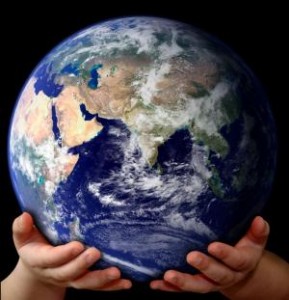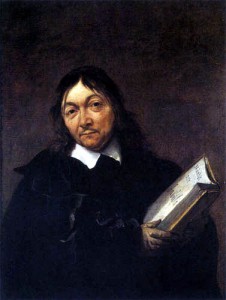I sometimes liken the process of dialogue to a group of people playfully pushing a boulder up a gentle incline until the unseen top is reached, at which point things begin to roll on their own. The most difficult thing for people to do is hold a question together, while holding beliefs and opinions in abeyance. But that’s essential to create a space for mutual enquiry. It means both sharing in a question and questioning process in the present, and at the same time suspending one’s ideas and previous experiences.
 What is the most important question at the present time? I feel it’s this: Can the breakthrough in human consciousness that changes the disastrous course of humankind occur now?
What is the most important question at the present time? I feel it’s this: Can the breakthrough in human consciousness that changes the disastrous course of humankind occur now?
Make no mistake (to echo America’s hapless president), if it doesn’t happen now, nothing will change for the foreseeable future, and man will continue to decimate this planet.
Presuming it is the most important and urgent question, I wonder, how many people are asking it? Lately I’ve been feeling it’s very few.
Perhaps many more people are privately asking whether humankind can change course, but they are waiting for others to step forward, since they think that that the neck that sticks out gets the axe.
Or is frozen out. But given the ‘arctic vortex’ presently gripping America’s heartland, that too may not be an apt metaphor for a Californian to make.
Is the match to be struck in the culture of greatest darkness in the world—what cultural geographers call the North American culture hearth? Or is it elsewhere, such as Costa Rica, where the soul of the people hasn’t been completely flattened by individualism and consumerism?
Contrary to what the media would have you believe, the darkest lands aren’t the ones with the most oppression and violence, but the places of most insulation, complacency and self-concern. Especially when they spawn so much violence and hopelessness abroad.
Or is it not a matter of lands and location, but of adequately addressing that crumbling cornerstone of Western thought, Cartesianism?
Descartes, as the Web says, is “often regarded as the first thinker to emphasize the use of reason to develop the natural sciences.” To quote from the old fart himself: “Because I am a thinking thing, I rightly conclude that my essence consists solely in the fact that I am a thinking thing, or a substance whose whole essence or nature is to think.”
Only a philosopher could come up with such balderdash! But upon such twaddle our scientific age was built, giving rise to the veneration of reason.
Descartes’ breakthrough and now defunct accomplishment was to elevate reason above religious belief. He provided an alternative to the stultifying domination of theological thinking of his time. For successfully doing  so, we can laud and applaud him. But as the above quote indicates, his core premise is now quite laughable.
so, we can laud and applaud him. But as the above quote indicates, his core premise is now quite laughable.
Human beings are not ‘thinking things,’ computers are, and the cogito (“I think, therefore I am”) is no more valid or accurate than saying, “I am, therefore I think.”
The point being that we now need to dethrone the rational mind, without denying reason, and give insight primacy, as much as Descartes needed to dethrone religious doctrine. Reason has won the war, but humanity is losing ground as man, using scientific advances, decimates the earth and destroys the human spirit.
Since reason and science have not changed man’s course, we come back to the question, what will? Can anything, at least at this point in the dubious arc of human history?
There are two complementary areas of growth that the individual can pursue. One is inherently solitary and private, without being anti-social and separative; the other is social and collaborative, without being herd-like and un-diverse.
More and more people in the West live alone, but few have an inward life. The first thing, whether one lives alone or not, is to take time each day to sit quietly and observe the movement of thought/emotion without the observer.
Ending the observer is the first step in meditation, but it is a rare person that diligently does so. Without ending the observer in passive observation and active questioning, psychological division, and all the conflict and destructiveness in collective consciousness and the world that ensues from it, cannot and will not abate.
Psychological insight can be drawn from perennial wisdom and academic psychology, but these sources are derivative, second-hand, and superficial. The first and truest source of insight is meditative self-knowing.
The self (there is no such thing as ‘the Higher Self’) is inherently separative and divisive. Is the deep mistake of the separate self something children need to grow up making? I don’t feel so. ‘Building a self’ makes for dividuals not individuals.
In methodless meditation, all separation ends, if only temporarily, beginning with the observer standing apart from what s/he is observing inwardly and outwardly.
With this daily foundation, we can think together, which means holding a shared question while holding beliefs and opinions in abeyance until mutual questioning opens into simultaneous insight, leading to psychological revolution.
This non-separative form of communication generates communion, and it’s the most important thing we can do, beyond our individual spadework, to contribute clarity to collective consciousness during these dark and confused times.
Martin LeFevre

